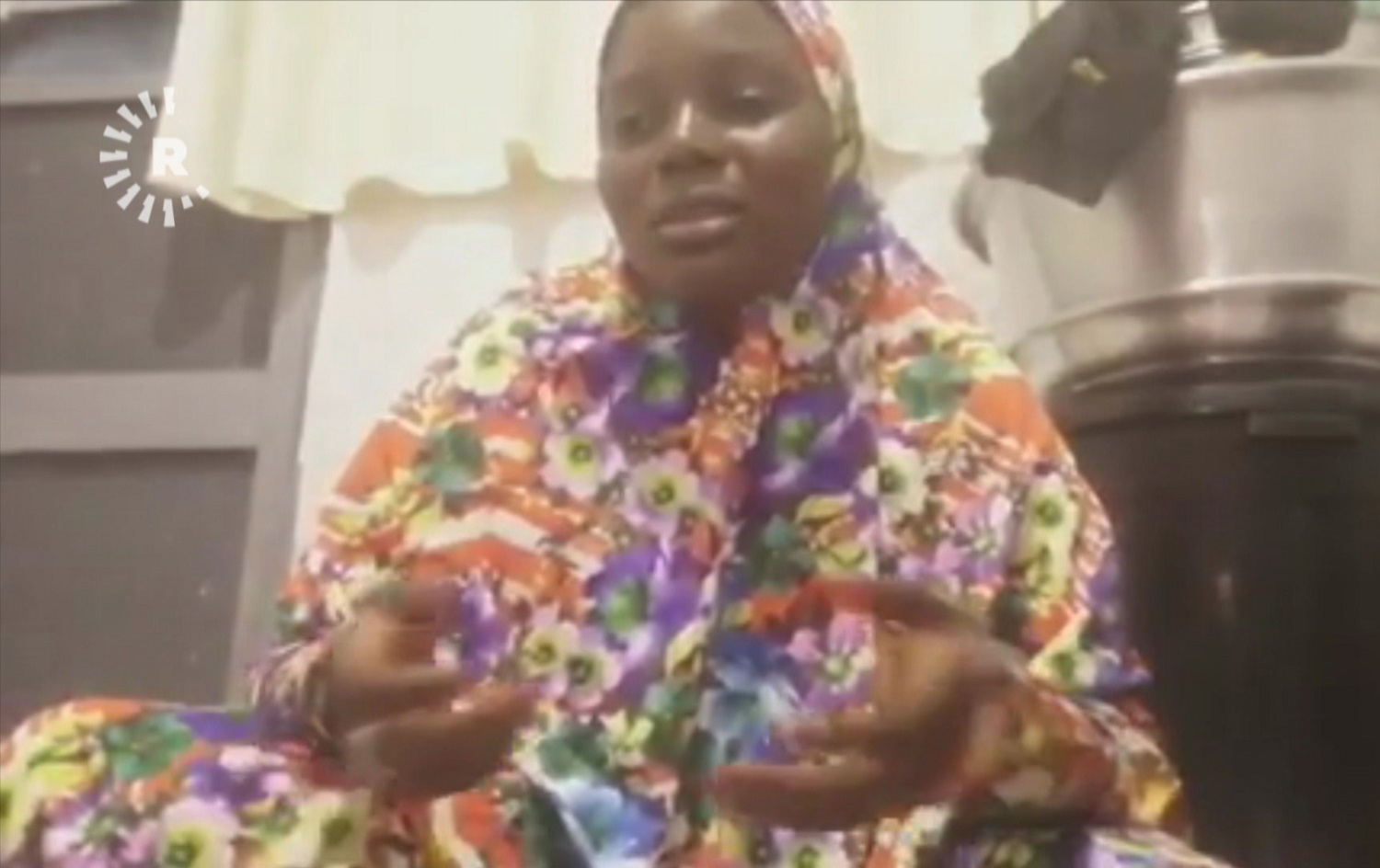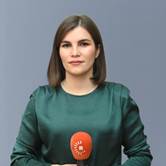ERBIL, Kurdistan Region – Samira Saeed, 30, is one of dozens of workers who came to the Kurdistan Region for work, but instead fell victim to human trafficking.
Shortly after getting married in her home country of Ghana, she came to Erbil through a company in search for work, but was immediately sent to Baghdad.
“I don't know why they took me like a slave. When I would talk to the house owner, he used to say, 'Don't talk. We got you from the company,'” said Samira.
“I used to tell him ‘You haven’t bought me, I work for you as a worker.’ And they said no. The house owner had sons, they wanted to sleep with me and I told him no and they embarrassed me every day,” she recounted.
She was able to escape from the house where she was employed and sought help at a police station in Baghdad. They sent her back to Erbil where the development agency SEED helped her go home to Ghana.
According to the government’s anti-trafficking office in Erbil, women make up 80% of human trafficking cases in the Kurdistan Region.
The SEED Foundation opened a shelter to protect victims of human trafficking in 2019, and has so far helped 54 victims, of which 37 were women.
“Numbers are on the rise and the situation is not good in the Kurdistan Region, which has become a source for human trafficking,” said Caleb Odhiambo, Senior Program and Protection Manager at SEED Foundation.

A local aid agency, the Foreign Workers Culture and Defense Organization (FWCDO), accused lawyers of getting in on the trade, bringing women into the country and selling them in southern Iraq for as much as $8,000 and said the courts are not prosecuting the traffickers.
“I don’t think that anyone has been arrested,” said Hazhar Mohammed, head of FWCDO, explaining that he has tried to follow up on cases his organization helped, asking the Ministry of the Interior about the whereabouts of people accused of human trafficking.
“We will not give any case to the court because it will take so long for the case to be resolved,” he said.
RELATED: Trafficking victims left unprotected by Kurdistan's courts
There are six anti-trafficking offices in the Kurdistan Region. In 2019, the office in Erbil registered 201 cases, of which 21 were found to be incidents of human trafficking. So far this year, 132 cases have been registered, of which 79 are human trafficking.
"Our office is visited by foreigners every day,” said Major Sardar Fadhil, head of the Erbil anti-trafficking office. “If their case is related to human trafficking, we directly open a case for him or her and present it to the investigating judge."
Human Trafficking is the third-largest crime in the world after weapons and drugs, and in recent years the Middle East has become a center of human trafficking due to war, political, economic instability, unemployment, and poverty.
Translation by Sarkawt Mohammed
Shortly after getting married in her home country of Ghana, she came to Erbil through a company in search for work, but was immediately sent to Baghdad.
“I don't know why they took me like a slave. When I would talk to the house owner, he used to say, 'Don't talk. We got you from the company,'” said Samira.
“I used to tell him ‘You haven’t bought me, I work for you as a worker.’ And they said no. The house owner had sons, they wanted to sleep with me and I told him no and they embarrassed me every day,” she recounted.
She was able to escape from the house where she was employed and sought help at a police station in Baghdad. They sent her back to Erbil where the development agency SEED helped her go home to Ghana.
According to the government’s anti-trafficking office in Erbil, women make up 80% of human trafficking cases in the Kurdistan Region.
The SEED Foundation opened a shelter to protect victims of human trafficking in 2019, and has so far helped 54 victims, of which 37 were women.
“Numbers are on the rise and the situation is not good in the Kurdistan Region, which has become a source for human trafficking,” said Caleb Odhiambo, Senior Program and Protection Manager at SEED Foundation.

A local aid agency, the Foreign Workers Culture and Defense Organization (FWCDO), accused lawyers of getting in on the trade, bringing women into the country and selling them in southern Iraq for as much as $8,000 and said the courts are not prosecuting the traffickers.
“I don’t think that anyone has been arrested,” said Hazhar Mohammed, head of FWCDO, explaining that he has tried to follow up on cases his organization helped, asking the Ministry of the Interior about the whereabouts of people accused of human trafficking.
“We will not give any case to the court because it will take so long for the case to be resolved,” he said.
RELATED: Trafficking victims left unprotected by Kurdistan's courts
There are six anti-trafficking offices in the Kurdistan Region. In 2019, the office in Erbil registered 201 cases, of which 21 were found to be incidents of human trafficking. So far this year, 132 cases have been registered, of which 79 are human trafficking.
"Our office is visited by foreigners every day,” said Major Sardar Fadhil, head of the Erbil anti-trafficking office. “If their case is related to human trafficking, we directly open a case for him or her and present it to the investigating judge."
Human Trafficking is the third-largest crime in the world after weapons and drugs, and in recent years the Middle East has become a center of human trafficking due to war, political, economic instability, unemployment, and poverty.
Translation by Sarkawt Mohammed










Comments
Rudaw moderates all comments submitted on our website. We welcome comments which are relevant to the article and encourage further discussion about the issues that matter to you. We also welcome constructive criticism about Rudaw.
To be approved for publication, however, your comments must meet our community guidelines.
We will not tolerate the following: profanity, threats, personal attacks, vulgarity, abuse (such as sexism, racism, homophobia or xenophobia), or commercial or personal promotion.
Comments that do not meet our guidelines will be rejected. Comments are not edited – they are either approved or rejected.
Post a comment